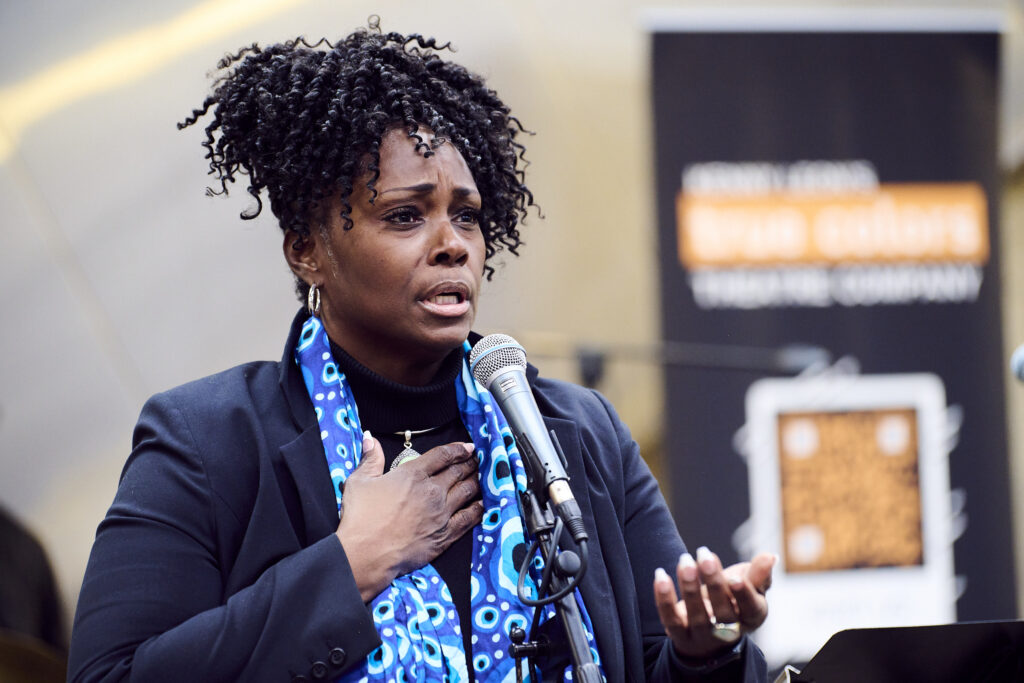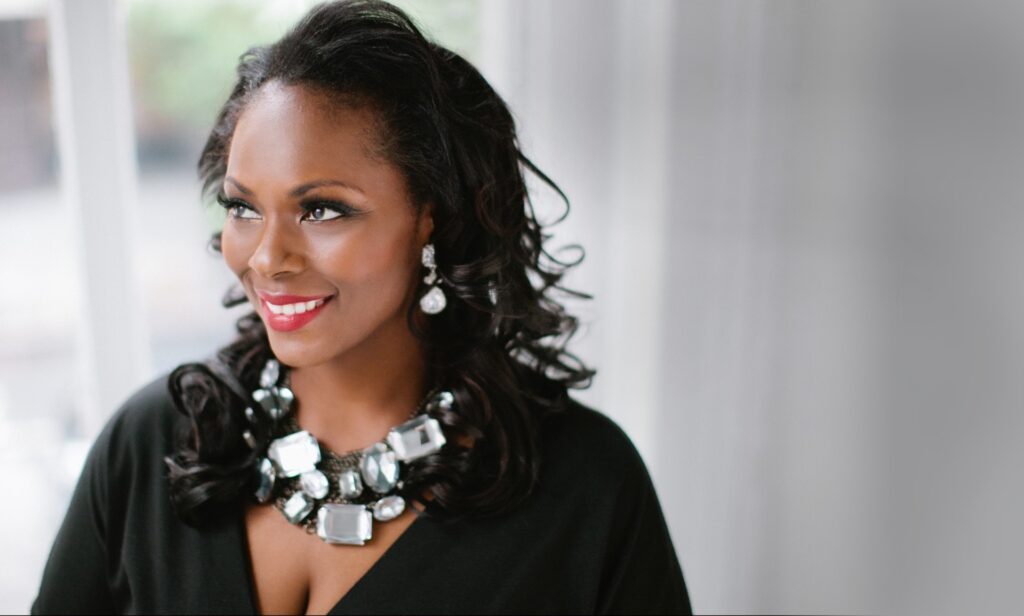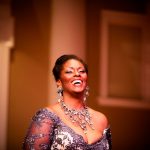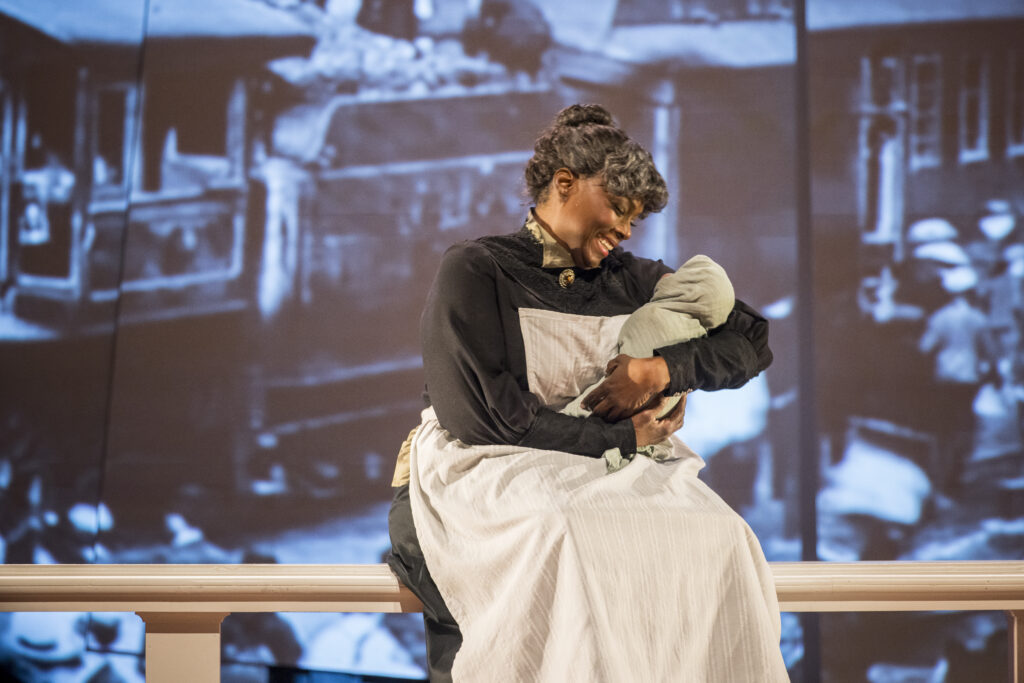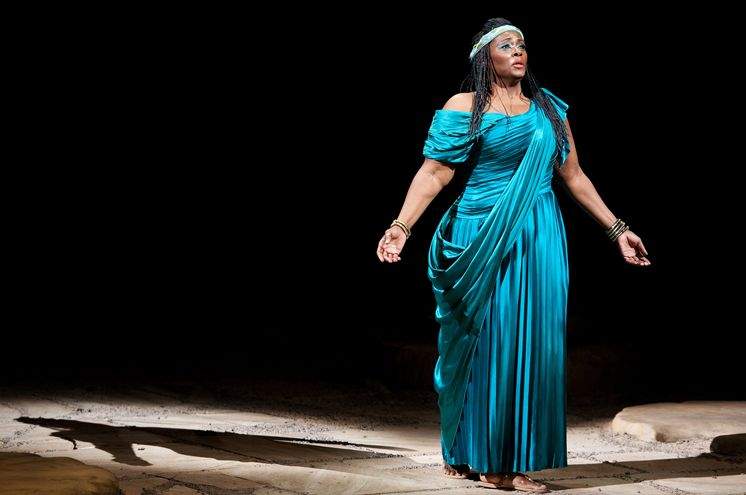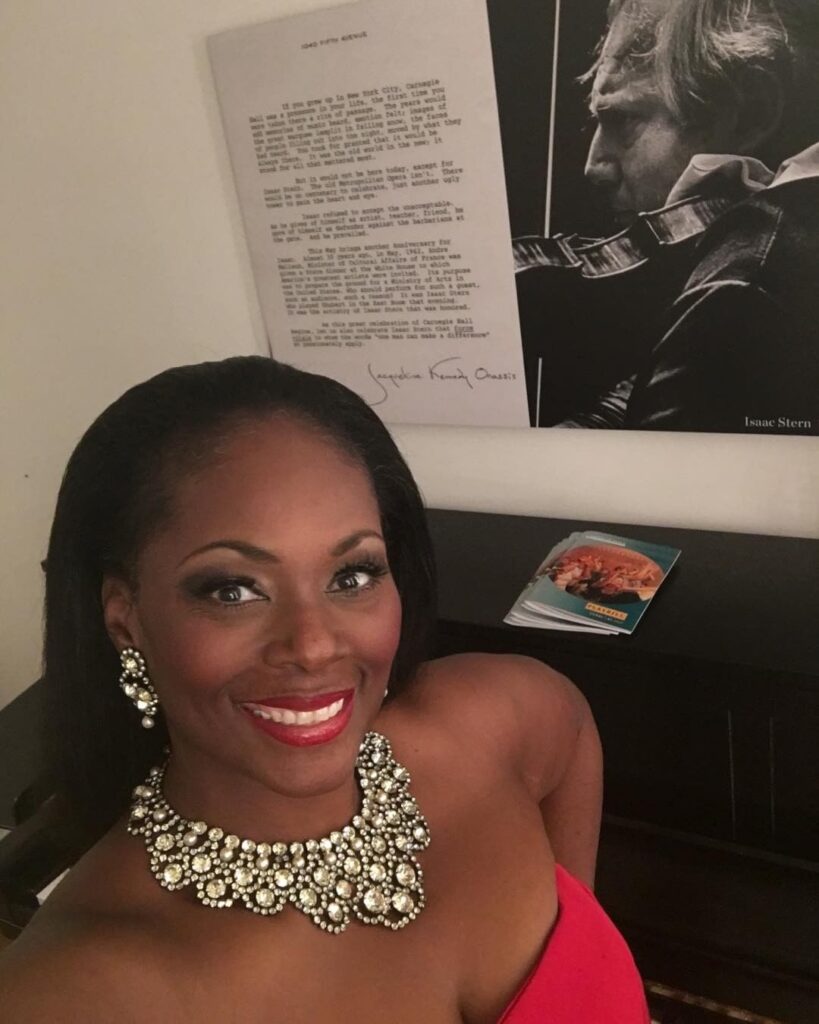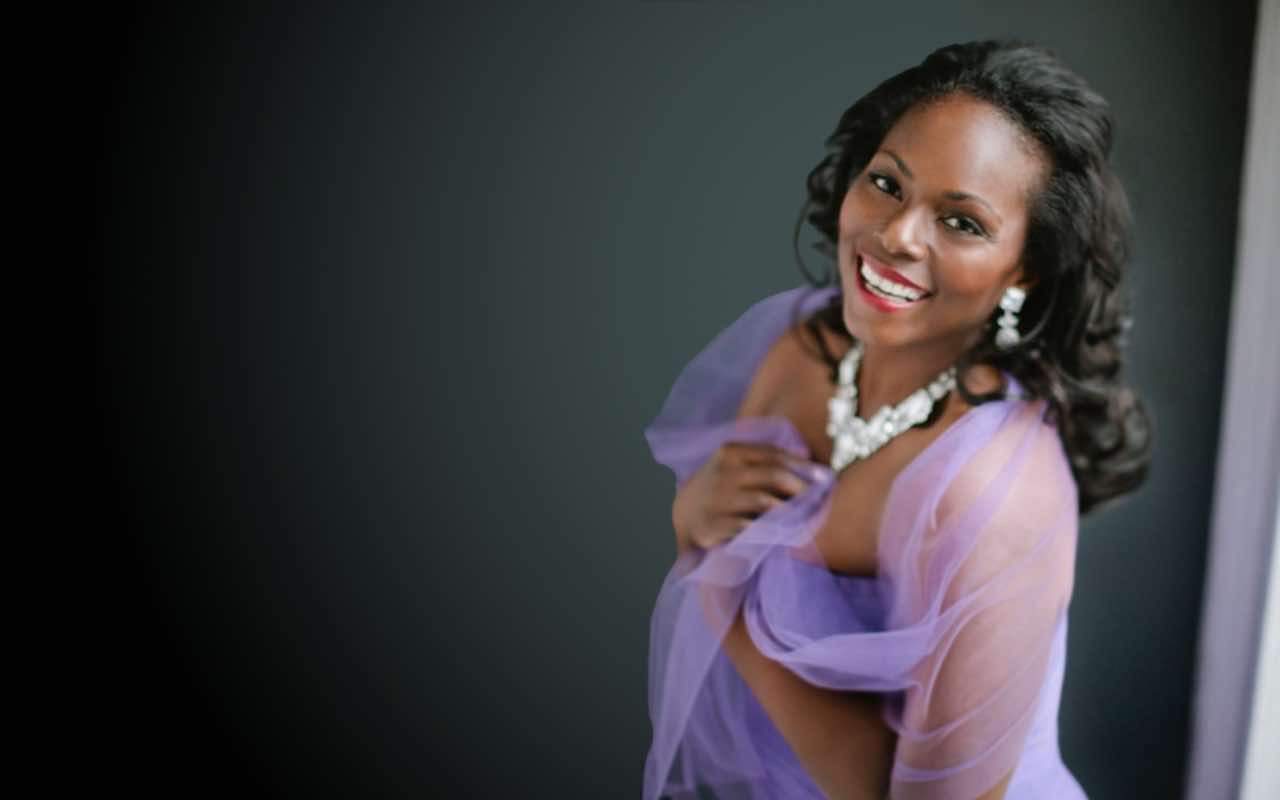When Indra Thomas sings, there’s more than sound — there’s light. Her voice fills the hall with both grandeur and intimacy, but it’s her joy that lingers longest. In a recent conversation with GSO Executive Director Suzanne Tucker, Thomas reflected on the path that led her from the church pews of Georgia to opera houses across the globe — and what continues to inspire her today.
A Childhood of Solos and Songs
“I grew up in the church,” Indra begins. “My father was a minister, and my mom — she had this operatic voice. She wouldn’t let me sing in the children’s choir. She’d say, ‘No, you sing solos.’ She trained me to walk up, stand tall, and sing on my own.” What young Indra didn’t realize then was that she was already being prepared for a life as a soloist. “All that early training — that was my first voice lesson, my first stage.”
When it came time to choose a college and career, Thomas laughs, “The only thing I really excelled in was singing! That was my ‘aha’ moment — realizing this is what I want to do with my life.”
Guided and Protected
While her mother was her earliest and perhaps biggest influence, Thomas credits a line of teachers and mentors — from her high school chorus director Mildred Fawcett, to college professor Dr. John Ramsaur, to vocal coach Elizabeth Colson — for shaping her voice and protecting her joy.
“I didn’t take the traditional road,” she says. “I wasn’t in New York or the Northeast scene. I had my teachers and a bunch of albums to listen to. But I was protected. When I came into this career, I was blissfully ignorant — and hungry. I just wanted to sing and be happy.”
That protection, she says, preserved her love for the art and allowed her talent to grow and flourish in a very free way. “A lot of people get jaded too early. I was lucky — I kept the joy.”
Opera as Home
While Thomas has performed in recital halls, concert settings, and symphonic collaborations, she always finds herself drawn back to the opera stage.
“Every time I go back to opera, I think, this is what I’m built for. Opera is exhilarating, intimidating, and everything in between. When it all comes together — the singers, the conductor, the stage director — it’s transformative.”
She laughs that recitals can be more nerve-wracking: “In opera, you can play off others. In recitals, it’s all you! But the more I perform them, the more I love them.”
The Call of Verdi
When asked which role changed her most, Thomas doesn’t hesitate: “Everyone knows I sing a lot of Aida — and that role was huge for me — but it’s Verdi’s heroines in general that transformed me. Amelia, Leonora, Aida…”Un ballo in maschera”, “La forza del destino”, “Il Trovatore” and “Rigoletto”— singing Verdi changed me.”
“Verdi is where my heart and soul are,” she continues. “When I sing Verdi, I feel different. I sound different. There’s something special in it — something spiritual.”
Animals, Africa, and Aida
And then, of course, there are the unforgettable moments — like the Aida productions that featured live animals. “I sang Aida in South Africa which was incredibly special. She is an Ethiopian princess, so singing that role in that place was…I didn’t even know it was a bucket list item, but it was! In that production, they had lions, horses, even a cheetah — off-leash!” she laughs. “I thought, okay, we’re really doing this? I made sure I was way up front — with 200 people between me and the animals!”
A performance in Charlotte, North Carolina, also stands out. “They had zebras. One lost its footing and looked right at me — those big eyes! I politely moved upstage. You can take out the mezzo, but you’re not taking me out!”
Keeping It Fresh
For Thomas, keeping classic roles alive means approaching them with imagination.
“I think about what the character is doing, where they are, what’s in the room — even down to a sack of potatoes on the floor!” she laughs. “It’s like childhood play. You use your imagination to make the audience see the world you create.”
On the Magic of Live Music
Thomas is passionate about live performance and the community it builds.
“Do a little research,” she advises newcomers. “Look up the opera, the music, the performers. Remember — this isn’t a video you can pause. It’s live theater. Every performance is different, and all of your senses are engaged.”
She believes live music brings people together in profound ways.
“Music is universal,” she says. “It’s not elitist — it’s for everybody. When I bring opera to schools, the kids’ faces light up. They realize that the experience that THIS person has, is actually very similar to the experience that THAT person has. And these two people don’t look anything like each other! And so there is the community, there is the camaraderie, there is the magic of bringing together all cultures. It’s a new world for them, and everyone — no matter where they come from — shares the same sense of wonder. That’s community.”
Looking Ahead
As for what’s next, Indra smiles: “I’ve sung Aida many times, but one day, I’d love to sing Amneris. She’s fiery — more my temperament! I’ll find one of my soprano friends to sing Aida, and I’ll take Amneris.”
This season, she joins the Georgia Symphony Orchestra to help launch its 75th Anniversary celebration. “I’m so looking forward to it,” she says. “I know Tim and I’ve known Suzanne for years — this will be a great fit. I hope the audience leaves feeling like they’ve traveled the world and been touched by something divine.”
